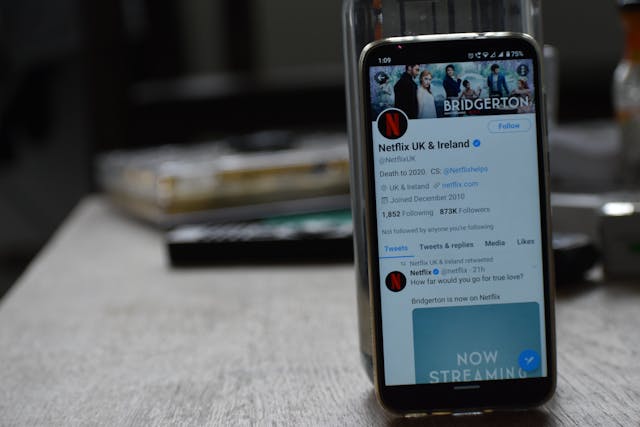
4 Digital Marketing Techniques Transforming the Online Entertainment Industry
The entertainment world has been changing faster than ever before. People aren’t just heading to the cinema or booking tickets for a concert anymore; they’re streaming gigs from their sofas, tuning into gaming tournaments on their phones, and attending virtual festivals with a few clicks.
This shift has pushed businesses to think smarter about how they grab attention. Traditional advertising simply doesn’t cut it these days. Instead, the smartest players are tapping into fresh marketing tactics to stay ahead.
1. Shaping Audiences Through Search and Social

In the entertainment scene, grabbing attention starts with being seen where it matters. Search engines and social media aren’t just platforms anymore — they’re the main stage. Gaming brands, streaming services, and virtual event organisers invest heavily in SEO and paid ads to climb up search rankings and get prime visibility.
They know audiences don’t scroll forever, so appearing in the top few results is crucial. Within this wider entertainment space, online gaming sites and online casinos are using clever marketing tactics to stay competitive. Online casinos often offer bonuses, promotions and ensure quick payouts, which attracts players. In a highly competitive market, the best fast payout casinos maintain an edge by offering quick and hassle-free access to players’ winnings. Sites like these have fine-tuned their SEO and outreach strategies to ensure they stand out in a crowded marketplace, keeping pace with the broader push for better, faster entertainment access.
2. Influencers and Word-of-Mouth in Virtual Spaces
Another big shift has been the rise of influencer marketing. When it comes to choosing where to spend time or money, people trust familiar faces more than faceless ads. Entertainment brands now partner with gamers, streamers, and social media personalities to create more natural, relatable promotions. It’s not just about sticking a logo on a YouTube channel — it’s about building real partnerships that feel genuine.
Virtual events have been especially quick to jump on this. Rather than traditional marketing blasts, they use influencer streams, behind-the-scenes content, and personal recommendations to create buzz. This kind of organic reach often beats old-fashioned paid ads because it feels authentic.
Entertainment brands also use micro-influencers to tap into smaller, dedicated communities. These collaborations tend to feel even more personal and trustworthy, helping brands reach audiences that bigger campaigns might overlook.
3. Personalisation: The Secret Ingredient

One size fits no one these days. Audiences expect entertainment tailored to their tastes, and smart marketers know it. Through data tracking and clever algorithms, streaming platforms suggest what to watch next, gaming companies offer personalised promotions, and virtual events recommend sessions based on previous interests. Around 20 million households in the UK — or about 68% of the population — now subscribe to a streaming service, according to research by Finder.com.
Retargeting ads have also come a long way. Whether it’s reminding someone to finish a series they started or offering a special deal to encourage another game download, personalised marketing keeps audiences engaged without feeling like they’re being shouted at.
Audience segmentation has become sharper too, with companies tailoring content and adverts by geography, age, and behaviour. The result? Campaigns that feel less like marketing and more like a genuine service.
4. New Tech Means New Possibilities
Augmented reality (AR) and virtual reality (VR) are making marketing campaigns more exciting. Instead of a simple video trailer for a new game, why not let people step inside the game world? Instead of just reading about a music festival, why not offer a sneak peek through an immersive VR experience? These tools aren’t just bells and whistles; they’re powerful ways to deepen emotional connections with audiences.
Even email marketing is getting smarter, using behavioural triggers to send the right message at the right time. Whether it’s nudging someone to revisit a forgotten streaming subscription or offering early access to a virtual concert, it’s all about being personal and timely.
Chatbots and conversational marketing are also playing a growing role, offering fans immediate interaction and assistance, making the user journey smoother and more engaging.
Staying Ahead in a Busy Market
Competition is fierce, and only the savviest businesses are thriving. The ones winning aren’t necessarily the biggest, but those who move fast, try new things, and genuinely listen to what their audiences want. By combining SEO, influencer relationships, personalisation, and new tech, entertainment brands are reshaping how they build loyalty.
Live data tracking means marketing strategies can pivot in real-time based on audience response. Brands that monitor trends closely and adjust quickly have a clear advantage. The aim is not just to keep up with the market but to stay a step ahead.
In a world where audiences have endless choice, it’s no longer about shouting the loudest — it’s about making sure the right people hear you at the right time. Those who understand this will be the ones setting the pace in the years to come.
Author Profile
- As the Chief of Marketing at the digital marketing agency ClickDo Ltd I blog regularly about technology, education, lifestyle, business and many more topics.
Latest entries
 Digital MarketingJanuary 15, 2026Growth Strategies with Marketing Automation & SEO in High-Competition Niches
Digital MarketingJanuary 15, 2026Growth Strategies with Marketing Automation & SEO in High-Competition Niches Digital MarketingOctober 24, 2025The State of AI and Digital Marketing in 2025: A Brief Analysis
Digital MarketingOctober 24, 2025The State of AI and Digital Marketing in 2025: A Brief Analysis Digital MarketingOctober 1, 2025How Dating Sites Climb to the Top of Google: SEO, Link Building, and the Cost of Visibility
Digital MarketingOctober 1, 2025How Dating Sites Climb to the Top of Google: SEO, Link Building, and the Cost of Visibility Digital MarketingSeptember 24, 2025Global vs Local SEO Strategies for UK Companies
Digital MarketingSeptember 24, 2025Global vs Local SEO Strategies for UK Companies

